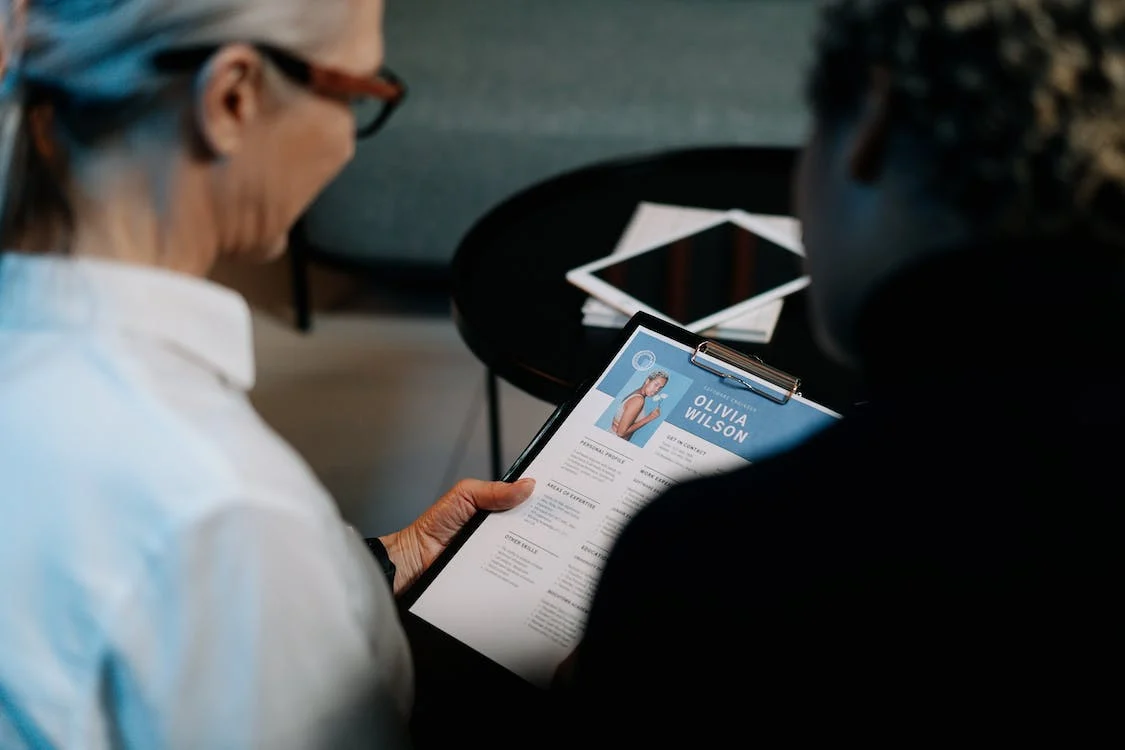So, you’ve found your dream job, but the number of years spent in the industry is out of your reach.
Because you’re a recent graduate or an industry changer, nailing your first job might be tough. The lack of a perfect match might discourage you from continuing your job hunting. Don’t give up! Our experts got you covered.
How do you promote yourself on the market without even an hour of work experience? Check the tips in the article below.
Can Any Job Position Be a Perfect Match?

Let’s be honest. A typical candidate rarely matches all requirements in the job post. Why so?
When writing a job post, a recruiter lists must-have and good-to-have (but not that important) skills. For instance, working as a web developer requires knowledge of specific software. So if you’ve learned your tools but lack communication skills, don’t worry – you’re ready to apply.
Getting your first job is like solving the egg and chicken problem. You need work experience to enter the field, but to get enough experience, you should be in the industry already. You might visit this site and get a bot-beating resume or tips from our experts. For the second option, check the guide below on how to craft a no-experience resume by yourself.
Top 7 Ways to Write a Resume With No Job Experience

#1: Learn the Basic Rules
There is no such thing as ‘no experience,’ and let us tell you why. What an employer implies by saying ‘work experience’ is whether you’ve worked for any company in the past. Yes, you haven’t worked in the industry. But surely, you’ve had activities and projects that gave you hands-on experience to refine your professional skills. Let’s brainstorm together.
- College projects. Upload your recent project or add a link with a detailed project description in the Experience section;
- Internships. Completed an internship at a corporation with a big name? Be sure to mention it;
- Volunteering. Yes, these activities are great to back up your skills and experience. If you’re a teacher-to-be who already volunteered at the local school – add it;
- Certifications. These are documents telling the recruiter you’re worth the company’s trust;
- Awards. Won ‘The Best Horror Writer’ Award at the Literature Festival? List your award in Other Sections or tell the hiring manager about the project you worked on in the Experience section.
#2:Use a Functional Format
A resume format can win you a job or turn your job hunting into a disaster. So instead, aim for the Functional format. Unlike other resume formats, the Functional option lets your skills shine, distracting the recruiter from your lack of experience.
A Functional resume starts with a Skills section (after the Summary paragraph) and lists your skills in two sections.
The first section is Hard Skills. Here, mention the skills that make the core of your profession. For instance, the tools you work with and the industry knowledge.
The second section, Soft Skills, focuses on your personality. Which personality traits are important in your job? For example, is it communication or interpersonal skills? What about stress resistance or physical stamina?
#3: Upgrade Your Education Section
A college degree will save your career as this is direct proof of your knowledge. List the relevant coursework in the Education section after you mention the university name and the year of graduation. Nonetheless, your education does not strictly consist of the college subjects you’ve had in the bachelor’s program. List other courses, workshops, and extracurricular activities you’ve attended, especially if those courses and seminars provide you with certificates.
#4: Fill in Your Resume With Keywords
Professional keywords matter as they elevate your chances of winning a job interview. As the name suggests, professional keywords are words strongly associated with one’s occupation. These are the terms used in a specific industry to describe tools and work processes. For instance, a ‘curriculum’ is a professional word to a teacher, while a ‘scalpel’ is a professional word to a surgeon. Use them wisely to beat the ATS bots.
Which professional words to use in your first job-ever resume?
- Names of tools and software;
- Verbs that imply professional activities;
- Job-related skills
#5: Compose Cover Letters
A cover letter builds a stronger connection between an applicant and the recruiter. It gives one a chance to state their career goals, their passion for work, and the reasons to distinguish them from other job seekers. Writing a cover letter is a great opportunity to tell your only story. The hacks to remember when composing a cover letter are as follows:
- Choose a sample with a great structure;
- Focus on your education and accomplishments in the first part of your cover letter;
- Tell the recruiter how the company will benefit from your skills and knowledge in the second part;
- Leave your contact details so the recruiter can reach out.
#6: Make a List of References
Enclose your References List with the contacts of everyone enlisted. Doing so is essential due to possible phone screenings and background check-ups. In addition, make sure your References List includes people who can prove you’re a reliable professional-to-be.
The main tip is to avoid adding friends or family members, as they’re not the most credible source.
Who to add to your References List?
- Former and current academic supervisors;
- College professors;
- Mentors;
- Your former colleagues (for instance, people you’ve volunteered with or the head of the volunteering project).
#7: Customization is the Key
The shortest advice you’ll get but surely one of the core tips to follow. If you’re applying for more than one position, customize your resume and cover letter. All because employers value different aspects. Hence, make sure your resume matches the demands listed in the company’s job post. The same goes for your cover letter. Make sure it tells a story that mentions the right skills, education, and projects.
Final Thoughts
Diving deep into your dream industry with no experience at all is possible. The essential thing to remember is that there is no such thing as ‘no experience.’ Everyone has something to bring to the table. Whether you mention college projects or internships, the key is never to leave the Experience section empty because no-experience resumes never get a second look.
We hope the article was helpful to you. Good luck!
Additional:




























